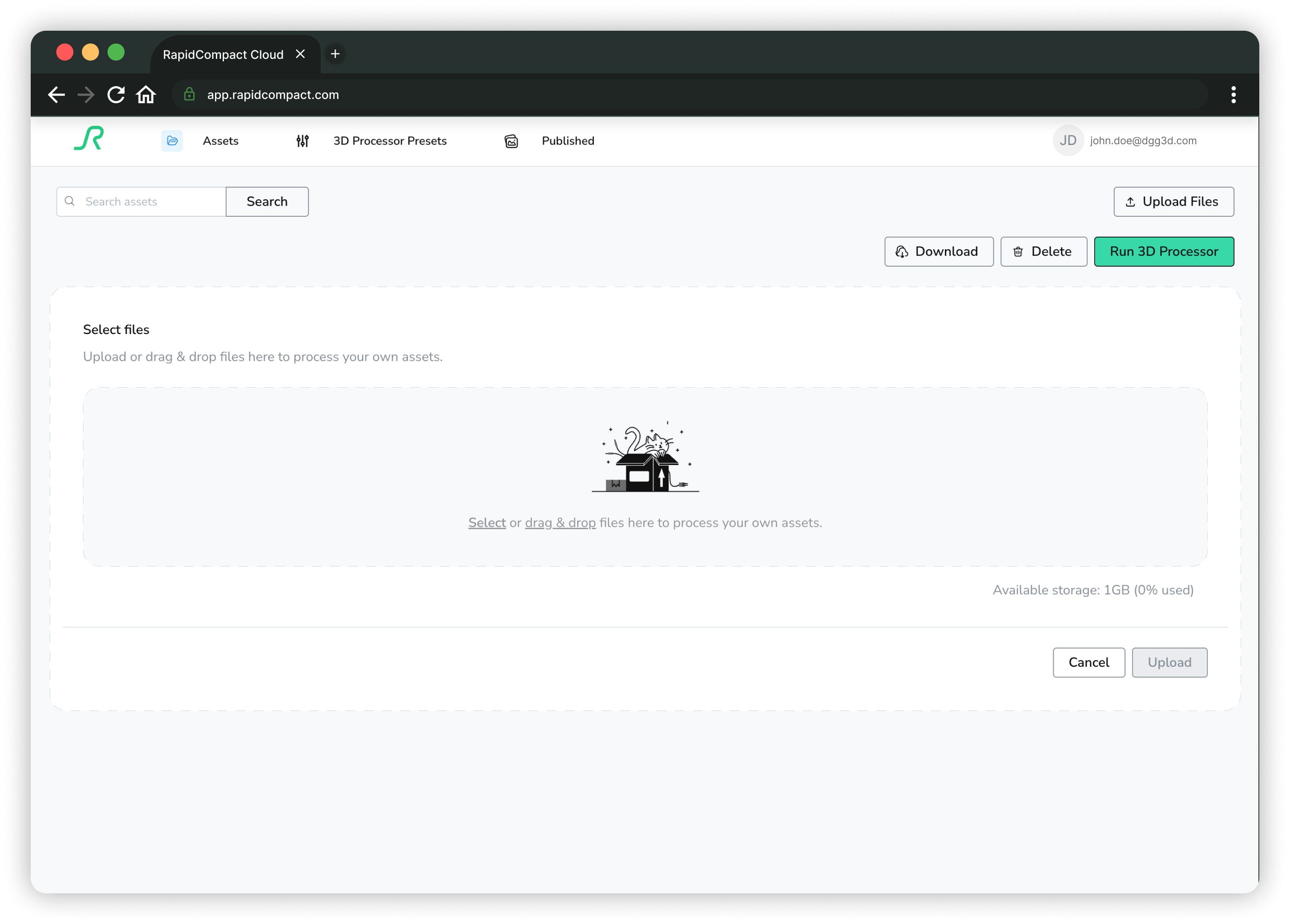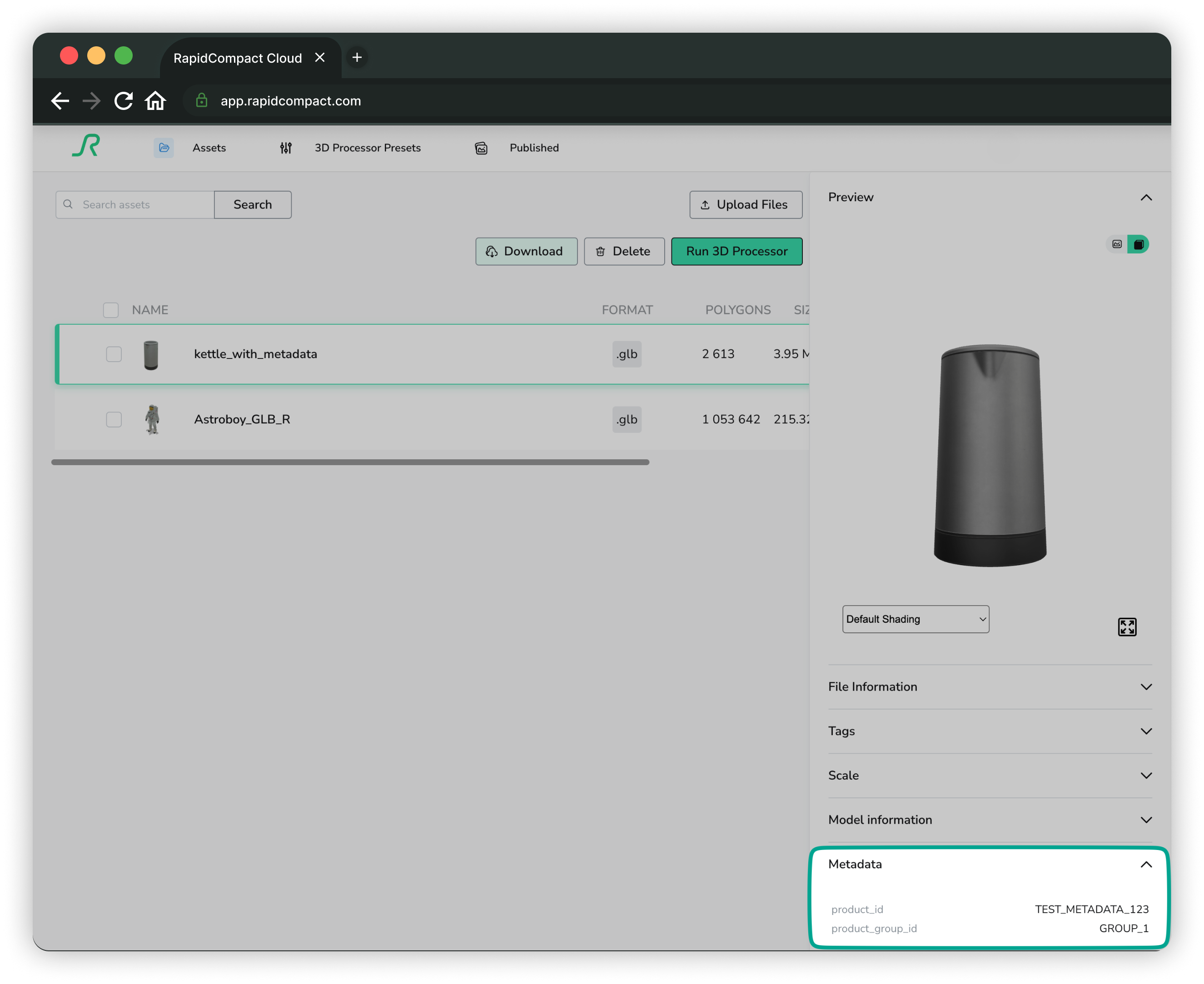Getting Started
Once you have signed up, you receive 14-day trial for RapidPipeline Starter CAD Edition.
Uploading your models
When you sign up to RapidPipeline Web Platform, you will have to upload your assets to begin your journey. You will be greeted with a drag&drop area where you can drop your assets and initiate upload.

The asset guidelines that apply to RapidPipeline 3D Processor CLI are also valid for RapidPipeline Web Platform. Explore those guidelines here. ::: Here are the supported import formats for RapidPipeline:
- OBJ
- PLY
- GLTF
- GLB
- FBX
- STL
- USD
- USDC
- USDA
- USDZ
- ZIP
- VRM
- 3DS MAX (V-RAY)
- CAD formats
Auto Converted Files
RapidPipeline will automatically convert:
- CAD files into .glb and .usd versions
- 3ds Max files with V-Ray materials into .gltf, .glb, .max, and .fbx with PBR materials Read more
Best Practices
The below short list makes up about 90% of file import failures.
- For 3D models that are not self contained, ideally you should always compress your 3D files inside a .zip (.rar and other archive formats are not supported)
- If you are uploading a .max scene for DCC Importer,
- Make sure not to upload files that have large names.
- Make sure that it is saved with 3dsMax 2025 or 2024 or 2023. Older versions are unsupported.
- No absolute paths - Make sure your model does not contain absolute paths in their material descriptions
- In these cases, your model will still upload but you may not see its materials or textures properly and you will see a warning related to that.
- Do not upload more than one 3D model inside a single archive. Even if it is the same model with different export formats (i.e. .obj and .fbx), you will get an error message while uploading it.
Uploading a model with Custom Metadata
In order to upload a model with custom metadata, you need to store this metadata in a valid json file and the name of this file needs to be custom_metadata.json or any_prefix_you_prefer_custom_metadata.json
model.zip
--- | model.glb
--- | custom_metadata.json
